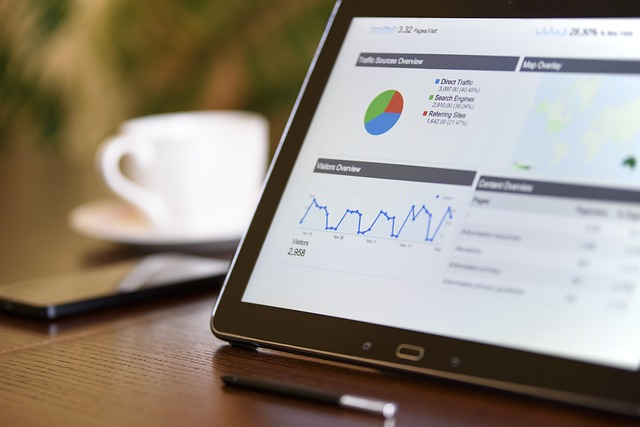Pursuing a career as a digital marketer can be an exciting and rewarding opportunity.
Digital marketers are responsible for many challenges that happen in the world of digital marketing, such as creating strategies for digital marketing campaigns, producing content, analyzing data, and more.
Today, you’ll find out what digital marketers do, the skills and qualifications required to become one, and how to take your career in this field called online marketing further.
Who is a Digital Marketer
A digital marketer is a professional who specializes in utilizing digital channels or platforms to promote and advertise products, services, and brands. Digital marketers use techniques such as SEO, paid advertising, email marketing campaigns, content marketing, influencer marketing, affiliate marketing and more to drive conversions for their clients.
What Digital Marketing Skills Are Needed to Be a Digital Marketer
Understanding of digital marketing channels
Becoming a successful digital marketer requires more than just understanding of the major digital channels like SEO, content marketing, and social media. It also requires knowledge in areas such as data analytics and artificial intelligence (AI) which will help you with developing effective strategies including using AI for SEO and tracking performance against specific plans.

You’ll need to have strong business acumen to understand how each digital channel must fit into an overall marketing strategy, as well as excellent creative problem solving skills that allow you to adjust or formulate new plans when needed, and knowledge on how to measure success.
Ability to track and analyze data
Digital marketing is a great way to reach potential customers quickly, but the successful digital marketer needs to have certain skills in order to be effective and successful. Having the ability to track and analyze data accurately is a must – it’s not enough simply to know where your traffic comes from, you also need to understand how users interact with your message so you can tweak it accordingly.
Without being able to effectively collect and use this data, your digital marketing efforts will end up coming short at best, and ineffective at worst.
Excellent writing and communication skills
Digital marketing has exploded in popularity in recent years, and for good reason. In order to be successful as a digital marketer, there are many skills that you must possess.
You must have a deep understanding of analytics and how to best track user engagement with your materials/content. You need excellent writing and communication skills since much of your work will probably involve creating compelling content.

Knowledge of website design and development
If you want to stand out as a digital marketer, then you need to have an extensive knowledge of website design and development.
Crafting beautiful and effective website marketing efforts is fundamental to captivating audience attention, so it’s vital that your content is well-organized, easily navigable and aesthetically pleasing. You’ll also need to be able to track performance through metrics such as the number of visitors, conversions rates and profile engagement.
Strong understanding of SEO, PPC, and social media marketing
With the shift of many businesses now turning to digital marketing, having a well-rounded and diverse knowledge in this field has become increasingly important.
As a digital marketer, it’s essential to have an in-depth understanding of SEO, PPC, social media marketing, and web design. Knowing how to create an effective online strategy that puts your product in front of the right audience is key.

Experience with CRM software
To be a digital marketer, you need to be comfortable using CRM software to send emails en masse and analyze customer engagement.
Knowing how to identify trends from data is also key; spotting the little details in data will help you personalize digital marketing campaigns and create meaningful connections with customers.
With the right marketing skills, businesses can create marketing campaigns that will have customers engaged with their brand for weeks, or even months.
While experience in coding and HTML are beneficial for a digital marketer, leveraging creative writing skills to craft engaging messages is equally important. As a digital marketer, you’ll have the power to make businesses shine through insightful strategies and inventive content—which makes it one of the most exciting job titles around!
Strong writing skills for creating content that engages the audience
In the age of technology, a digital marketer needs to ensure that their content delivers the tone and personality of the brand in an engaging way. To be successful, a digital marketer needs to be adept at crafting compelling copy that captivates and instructs the reader.
Crafting witty copy can help capture attention, while storytelling techniques can create an emotional bond with your audience. It is also important not to overlook fundamentals like correct spelling and grammar. With strong writing skills, a digital marketer can engage the readers and make them take action towards desired outcomes.

Creative thinking to come up with new ideas for marketing campaigns
As a digital marketer, you need to be able to think outside the box in order to produce innovative marketing campaigns and capture your target audience’s attention.
Whether you’re tapping into trends, creating witty puns, or crafting thoughtful stories that emotionally engage your demographic, having a robust creative skill set is paramount to being successful on the digital marketing front.
Keeping abreast of fresh content strategies, executing efficient channel planning and management, and developing successful relationships with influencers all require creative thinking – without it, your digitally-savvy ambitions will remain just out of reach.
Knowledge of marketing principles and how to apply them online
In the constantly developing digital landscape, a successful digital marketer must acquire an agile set of skills. Central to this is an understanding of fundamental marketing principles and how to best apply them online.
It’s not just about having an eye for media design, marketing campaign execution or content optimization – a great digital marketer should also be able to develop strategies aimed at achieving particular goals, as well as measure results from different channels in order to drive insights and increase ROI.

All in all, it’s important that a digital marketer has broad-based forte in both creative and technical skills.
Keen attention to detail for ensuring all aspects of a digital marketing campaign are perfect
When it comes to digital marketing, being a master of the craft requires sharpened skills in several specialized areas.
Chief among these is attention to detail. Digital marketing managers must be exceptionally precise and careful when setting up marketing campaigns; if even one small part is not perfectly calibrated, then it can lead to poor outcomes or, worse yet, loss of revenue.
An excellent digital marketer stands out due to their grasp of the minutiae that come with creating a successful digital marketing campaign — every pixel needs to be in its designated place.
If you’re an aspiring digital marketer and have the patience for careful preparation and setup, then you may find yourself enjoying great success in this field!
What are Responsibilities of a Digital Marketer
Understand the company’s goals and target audience
A digital marketer’s primary responsibility is to understand the goals that their company intends to achieve and the target audience they plan to reach. It is important for them to recognize the unique traits and preferences of their target customer, so that marketing strategies are more effective.

They should be able direct their efforts towards delivering the most suitable messages, using channels like social media or email, that intrigues and interests their customer base.
All in all, a digital marketer is responsible for identifying creative ways of finding prospects and turning them into customers through a mix of artistry and practicality!
Create, manage, and monitor marketing campaigns across different channels
It is your job to make sure your campaigns are effective and reach the right audience. Your responsibilities begin with creation — coming up with strategies that create marketing content that resonates with consumers.
Collaborating with different teams to ensure messaging is consistent across every channel in your digital marketing campaign also falls within the scope of your job.
Once created, it’s time for management and execution of said campaigns across channels like social media, emails, and video ads. The last step is equally important – staying on top of the results by monitoring engagement metrics, conversion rates, profit and loss margins and more.

Ultimately, you are the one who will determine how successful these campaigns are. So shine like the digital star you are!
Analyze and report on campaign results
Digital marketing managers have a massively important responsibility of making sure their marketing campaigns are reaching the desired audiences and having the desired effect.
It goes beyond launching campaigns and hoping for the best, all digital marketing managers need to be adept at monitoring and moderating campaigns to ensure they are impacting customers as expected.
Analyzing and reporting on digital marketing campaign results is a must for any digital marketer, as it allows them to understand how their every decision is helping or hindering their success.
Analysis lets them identify what works best and where more attention needs to be paid, so that they can maximize the value of their efforts accordingly.

For any successful digital marketing strategy it’s important to measure your attempts, in order to know if you’re improving or stagnating. With regular reporting, digital marketer people can demonstrate whether their efforts have increased lead generation or customer loyalty.
Identify opportunities for optimization and improvement
As a digital marketer, one of your main responsibilities is to identify opportunities for optimization and improvement that you can leverage within your marketing strategy. This means closely monitoring trends in both the marketing industry overall, as well as the specific digital platform you are using.
By doing so, you will be able to adapt tactics and tweak strategies if successes are not being seen in the campaigns that have been implemented. Staying ahead of digital trends allows marketers to continue being innovative with their approaches and remain competitive inside the ever-evolving digital marketing landscape.
Collaborate with other teams within the company to ensure consistency of messaging
Promoting a consistent image often requires brainstorming sessions with folks across departments.
For example, if there’s an upcoming product launch, my team will sit down with designers, copywriters, customer advocates, even finance to analyze how our collective efforts can bring out the best in each other’s work and genuinely connect with our stakeholders.

Communication is key here: staying on top of timelines, deadlines and objectives while checking in with everyone involved keeps things running smoothly as we all work together towards success. Plus it’s undeniably more fun – every office could do with a bit of collaboration-inspired excitement!
Keep up with industry trends and changes
Staying on top of industry trends is a must. Skimming through countless blog posts and articles is just one way to accomplish that. Staying active in marketing-related communities can also be helpful; as well as following thought leaders, industry writers, and competitors via social media.
Making sure to set up Google alerts for relevant keywords and tracking how your competitors use their digital channels are also key responsibilities of a digital marketer.
It can be hard to stay on the cutting edge of digital marketing since it changes so quickly, but with this arsenal of tactics you’ll always know your way around the latest industry updates!
Measure and analyze the results of digital marketing campaigns
A digital marketer is responsible for the success of a product or brand in the online space. A crucial part of that job is to measure and analyze the performance of campaigns conducted in order to reach their target audience.

This requires strong analytical skills, as well as historical knowledge in order to identify areas of inconsistencies among various campaigns and even differentiate between one-off successes versus consistent results – all while finding creative ways to make an impact with unique content.
Relationships between metrics and their corresponding outcomes must also be identified so they can be replicated.
Moreover, understanding the needs and wants of their target demographic comes into play when developing strategies, so data gathering and digesting will be key tasks too.. In short, a digital marketer must have more than just smarts: creativity, critical thinking, strategy planning, data comprehension; these are all essential for successful implementations of digital marketing campaigns.
Identify trends and opportunities in the digital marketing space
Digital marketing is an ever-evolving landscape. As a digital marketer, it’s your responsibility to identify the potential opportunities using data-driven insights.
That means being aware of emerging industry trends, tracking competitors’ performance and mining industry resources for any new nuggets of knowledge that you can use in your own strategies.
It also means recognizing what has become standard practice amongst digital marketing managers and how you can leverage them for maximum impact.

Regardless of the specific tactics you choose to employ, as a digital marketer it’s ultimately your job to ensure that your organization ends up on the winning side of the digital divide.
Manage customer data and create targeted customer profiles
Digital marketer has a formidable list of responsibilities, and managing customer data and creating targeted customer profiles are essential.
The only way to really hone in on the right customers for the right products is to understand their information intimately.
To be a successful digital marketer today means having an eye for data, understanding how to use it correctly, and at the same time staying on top of trends.
It’s all about deciphering patterns from big datasets, finding insights that will inform planning, and executing campaigns that drive conversions.
A digital marketer needs to be a jack-of-all trades: armed not just with data analysis skills but also strategy, writing and technology skills all rolled into one! In short – it’s no small task for sure!
Conduct competitive analysis
A Digital Marketer’s ultimate job is to make sure a business stands out among its competitors. Achieving this goal requires researching the playing field and understanding what strategies are required to outperform the competition.

A great way to do this is by conducting a competitive analysis, which looks into the strengths and weaknesses of your rivals and how best to overcome them. By understanding your competitors’ approach, you can preempt their next steps with an even better plan and leave them in the dust!
Conclusion
How about that? Digital marketing is no small task. It requires a broad range of skills, from data analysis to strategy planning and more.
To be successful in the field, digital marketing managers must stay on top of trends, and use data-driven insights to inform their strategy.
They must also conduct competitive analysis and manage customer data in order to create targeted customer profiles. All of these tasks are as challenging as they are essential — but with the right skills, any digital marketer can succeed! Good luck out there!
Digital Marketing Efforts: FAQ
How to run a digital marketing campaign?
There’s no one-size-fits-all answer to this question, as the best way to run digital marketing campaigns will vary depending on your business and its goals.
However, some tips on how to run successful digital marketing campaigns include creating valuable content, using social media platforms to reach your target audience, and measuring the results of your marketing campaign so you can optimize your efforts.

How to build a digital advertising strategy?
Crafting a successful digital advertising strategy can be difficult, especially since the internet and related technologies are always evolving.
However, these nine steps will help even the most novice marketer create an effective digital ad campaign: first, determine what you’re targeting; research your target audience and find out what they value; craft compelling language that resonates with them; format your message for small screens; find the right channels and platforms to reach your target audiences; create colorful and eye-catching visual components for maximum impact; evaluate results, improving content accordingly; maintain existing relationships with readers or customers; and finally utilize specific tactics like retargeting and A/B testing to further refine your digital advertising strategy.
Taking the time to explore these nine steps gives you an advantage in creating an effective digital strategy!
What should a digital marketer know about traditional advertising?
As the technology revolution continues to take over the marketing industry, it is important for a digital marketer to not forget about traditional advertising. Traditional marketing techniques involve an eclectic mix of activities, from print ads in magazines and newspapers to television commercials as a form of traditional marketing. The key focus with these types of campaigns is to reach a large audience in a short burst of time.
Digital marketing managers can benefit from understanding the impact that traditional advertising has when used together with their own expertise in digital marketing.

It’s like adding peanut butter to chocolate; two great things (online marketing and offline marketing) that make a winning combination – and you can really do that with traditional advertising! By appreciating and using both traditional marketing and digital techniques, digital marketing managers can create truly effective campaigns that are well rounded and strategically planned for maximum success.
What should digital marketers know about social media platforms?
Digital advertising managers should think of social media platforms as the original 21st century bargain. They offer a huge global reach and powerful presence while requiring less of your time and money than other traditional means of marketing.
That being said, using them effectively requires tapping into what makes each platform unique – how it appeals to users, how people interact with content, and which attributes garner the most success.

From finding the best hashtags for Instagram to understanding which metrics to track on Twitter – digital advertising managers have to stay up to date on all the nuances each social platform comes with. Social media can help any business become more visible in the virtual world but being informed about these features is key if you want to use them to succeed.
Are digital marketers responsible for website traffic?
Digital marketing managers have an interesting conundrum on their hands – they’re responsible for driving higher search engine results pages, but they can’t control the outcome once visitors arrive. It’s a bit like handing out invitations via offline channels, setting up the decorations, and making sure everyone has something to drink – it sounds like online advertising managers should get all the credit when it comes to website traffic, right?
Think again! Their job is only done when users actually find what they need and decide to stay, so regardless of how much effort is put into marketing automation, online channels, or SEO and PPC campaigns, there are still many factors outside a marketer’s control that determine success. In the end you could say it’s a team effort – but that takes all the fun out of digital advertising!
How many digital technologies should digital marketer managers know?
Digital advertising is a complex beast, with technologies popping up every day that promise to open up new opportunities for advertisers and marketers. But the truth is, you don’t need to be a tech expert to be a successful digital marketer; you just need to know the right digital technologies to use in your campaigns.

By familiarizing themselves with digital advertising tools like email automation, Google Analytics, customer segmentation systems and content management systems, digital marketing managers can create personalized experiences that will drive customer engagement.
While understanding all of the latest trends and technologies may seem daunting – and certainly isn’t necessary! – it never hurts to stay informed and keep pace with advancements in the industry. After all, knowledge is power!
How many marketing channels can digital marketing people run?
Digital marketing is revolutionizing the world of advertising, providing marketers with an almost endless array of tools to reach customers. It’s no surprise then that marketers are able to use a multitude of channels within digital advertising, including email marketing, both organic and paid social media, display advertising, inbound marketing, mobile devices, mobile apps and many more.

There’s something for every budget and every audience size in digital advertising. Whether you’re looking to build brand awareness or drive sales, digital advertising has you covered.
With a little bit of creativity and an understanding of your target audience, marketers can make the most out of any number of channels in their quest for success!
What digital communication principles should marketers know?
Digital marketing requires more than a few keystrokes and a click of the mouse–it’s leveraging best practices to communicate with potential customers in the most engaging manner possible for better marketing efforts. As such, marketers need to understand core principles like creativity, personalization, connection, engagement, and authenticity when deploying digital communication.
Establishing an emotional connection is key: Marketing content should be interesting and entertaining, rather than just another sales pitch.
Additionally, it’s important to employ consistent branding across channels to create loyal relationships with customers over time. Finally, don’t forget the power of positive customer experiences — think interactive content such as polls and surveys that keep users engaged in an enjoyable way and drive long-term loyalty.
How can digital marketer contribute to raising brand awareness?
Digital marketing managers play a crucial role in the success of any company. For organizations striving towards higher brand awareness, they can provide a service that is well worth their services.
With the vastness of modern digital marketing channels, there is a variety of tactics marketing professionals can use to spread awareness about a specific brand to their target audience.

Whether it’s creating viral social media content, optimizing SEO campaigns, or creating beautiful advertising visuals on Instagram — digital marketing managers are the perfect conduit for raising brand awareness efficiently and effectively. Ultimately, as modern consumers receive most of their information online, digital marketing managers will continue to be essential when it comes to increasing a company’s overall recognition.
What should digital marketer know about social media ads?
Social media advertising is a vital part of marketing today, and digital marketing managers should be well-versed in its uses. Impressing people on social media takes more than just an eye-catching ad, however; the key to successful ad campaigns is knowing your target audience and what kind of content they’ll interact with.
Creative solutions supported by accurate data can help maximize return on ad spend and ensure that posts catch the right eyes.
Create ads that will encourage interactions, build trust with customers, and result in higher clickthrough rates. Tell your brand’s story to your existing customers. Investing in a proper strategy for targeting customers through social media is essential for any digital marketer in 2023.

Is digital marketing important?
There’s no doubt that digital marketing is important in today’s day and age. The efficiency of reaching a large audience with only a few clicks is nothing short of impressive. Brands no longer have to rely on traditional media and can target their desired audiences with just the click of a button.
By leveraging the power of digital advertising, businesses are able to cut costs while also getting feedback from customers more quickly than ever before. Companies now have an opportunity to reach parts of the world that weren’t even possible 20 years ago. With its unparalleled reach, digital marketing is an essential tool for any modern business vying for success.
What are elements of a digital marketing campaign?
A successful digital marketing campaign requires a few key elements: creativity, strategy, and tactical execution. To get the most out of your digital advertising efforts, you need to build a comprehensive plan and think through all the major points.
Your goal should be to create content that is both engaging and relevant to your target audience.
From there, you’ll want to identify the best channels such as social media posts, social media channels, search engines, search engine optimization, Google Ads, other digital ads and ad platforms, video marketing, inbound marketing, organic traffic, online advertising, content marketing strategy, email campaigns – to name just a few – through which you can spread the word about your message.

Finally, keep an eye on digital advertising performance metrics such as click-through rates and conversions to ensure that you’re driving the desired results. When these elements come together, digital marketing campaigns have the potential to reach new heights. Happy strategizing!
Is social media marketing crucial for digital marketer?
Social media marketing isn’t a luxury for a digital marketer – it’s a must. For one thing, it helps you have conversations with your target audience on platforms where they already live and breathe.
Plus, the reach these networks offer is priceless – for instance, when used strategically, you can reach hundreds of thousands (if not millions) of people in just a matter of days! But perhaps its most crucial benefit is that social media marketing allows brands to build rapport with their customers by engaging in meaningful interaction.
A thoughtful comment about an Instagram post could be the difference between a lifelong customer and one who goes elsewhere. In other words, use social media marketing or risk getting left behind – and digital marketeers make great social media managers.

How to build an effective digital marketing strategy?
A great digital marketing strategy requires foresight, creativity, and a solid plan. It’s all about understanding your unique audience and creating messaging that resonates with them.
To create the perfect strategy, begin by asking yourself questions like: Who are my target customers? What do they find valuable? How can I effectively communicate my message across different channels? Once you have clarity on who you’re trying to reach and what to share, your next step is finding the right tools to showcase your message.
Knowing when and where to use Twitter vs Instagram or email campaigns versus webinars can be tricky; selecting the platforms best suited to an audience needs some time and patience.
You might also want to try print advertising anyway, get some YouTube channel subscribers to help you across all the digital channels you manage, conquer in search engines, run Google ads, and conduct mobile devices focused inbound marketing activities.
Marketing automation is also your friend, as it allows you to adjust ad creatives, post better things for search engines, enter search engine market, and get loyal customers by even a single blog post.
Ultimately, crafting an effective digital marketing strategy involves an ongoing commitment – constantly testing out new approaches and evaluating their success over time. With this process in mind, marketers are sure to develop the best possible strategy for achieving their goals!
What does digital ad campaign include?
Digital campaign are a great way to reach a large audience with your message. They include the use of web-based forms of advertising, such as banners, pop-ups, and social media ads. The goal is to create attractive messages that stand out from the competition, with persuasive content served up in a professional and witty yet creative way.

Storytelling is especially effective for this type of marketing campaign, using visuals and sound bites to convey your brand’s messages in a memorable and exciting manner. Whether you’re looking for instant sales or long-term exposure for your business, digital ad campaigns can be tailored to fit the needs of any marketer.
You don’t need to spend money on search engine optimization – search engine marketing has a lot of bits and bobs you can use as a free digital marketing tactic.
What are popular digital marketing tactics?
Digital advertising is becoming increasingly popular in an age where many of us spend a lot of time online.
From content marketing strategies to the use of chatbots, there are so many digital tactics businesses use to drive engagement and create awareness about their brand. One example is creating interactive media for users to enjoy, such as engaging videos and graphic designs, that capture people’s attention.
Email marketing campaign is another big one, as it allows businesses to reach a wider range of potential customers while driving conversions. Social media is perhaps the most important part of any digital marketing strategy, with companies developing personalized messages and content tailored to followers’ interests in order to connect on a deeper level with their audience.

There are countless digital advertising tactics out there and each day new ones become popular in our constantly changing digital landscape!
How can digital marketer boost organic search results?
Digital marketer has an exciting challenge to tackle: boosting organic search results.
The good news is that by utilizing the right strategies and tactics, it’s possible to work your way up the ranks of Google. For example, consider upping your content game – publishing more content targeted at certain keywords and ensuring posts are optimized with keyword-rich headlines, descriptions, and tags can help draw more eyes to your website.
Let’s not forget about backlinks either – strategic link building to credible websites can prove beneficial for both parties involved.
Overall, digital marketer is in a strong position to give organic search results a boost – all it takes is some research, critical thinking and plenty of elbow grease.
